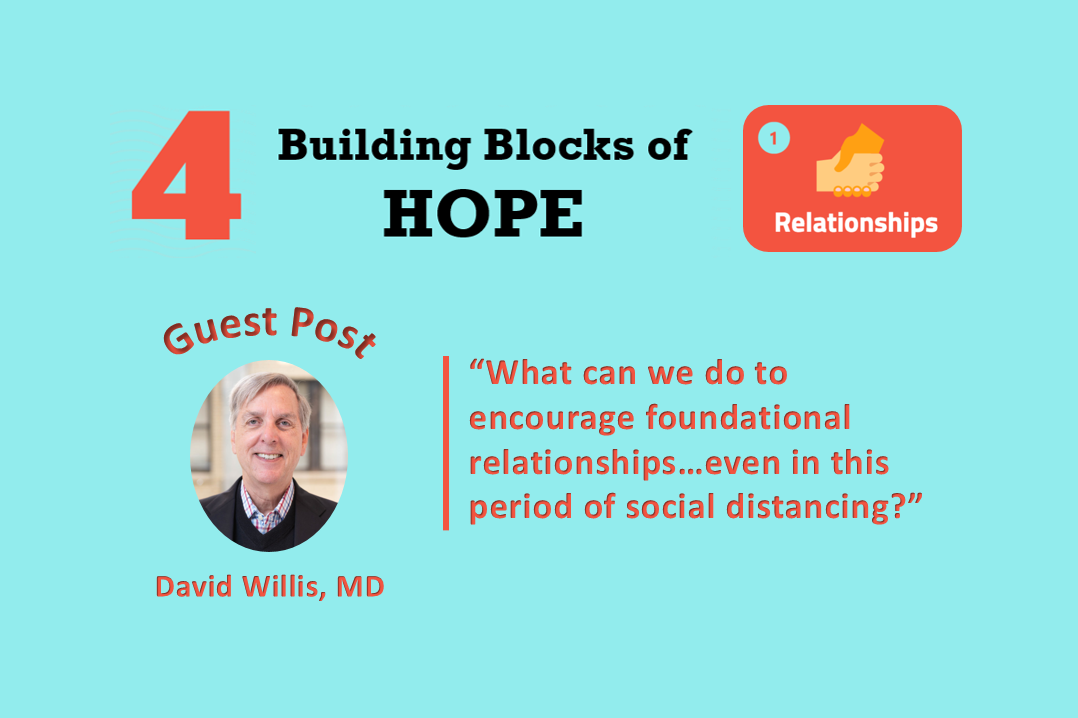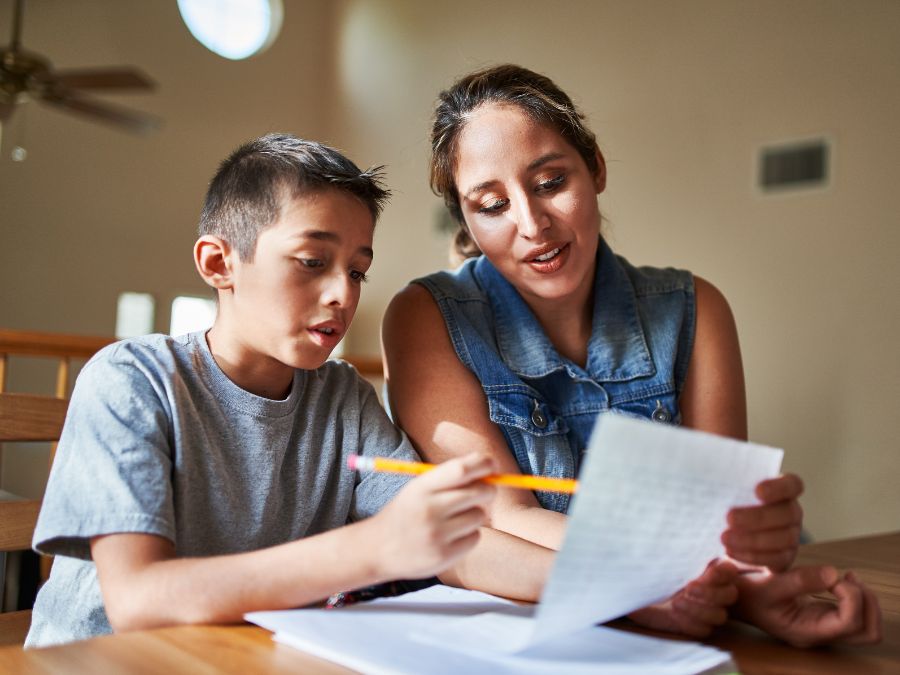
The Building Blocks of HOPE – Block #1: Relationships
Being in nurturing, supportive relationships are critical for children to develop into healthy, resilient adults. This concept forms the first of the 4 Building Blocks of HOPE. The first of these positive childhood experiences is having parents/caregivers who are responsive and interact warmly.
Today’s guest blogger, David Willis, further explores this building block by discussing what we now know about those key foundational relationships that children need.
David W. Willis, MD
Senior Fellow, Center for the Study of Social Policy
Our earliest relationships drive the acquisition of social-emotional and early learning capacities, kindergarten readiness, mental health, physical health and overall well-being. During the critical first 1000 days (from conception to age 2) the foundations of a healthy brain develop from nurturing caregiver-infant experiences. These foundational relationships early in life provide the necessary stability and supports for health and development.
Early relational health builds upon decades of research about the centrality of relationships between caregivers and very young children. The emerging view of child development focuses on the primacy of relationships for developing health and human capacity, supporting health and development in challenging times and mitigating ACEs (Adverse Childhood Experiences).
Attention to relationships has become even more important during this COVID-19 epidemic, especially for families with young children. Child-serving providers can encourage activities that support the foundational relationships of young families in daily life, and celebrate family resiliency in the face of the pandemic.
Here are a few scientific insights about early relational health:
- Positive, consistent, supportive relationships for infants and toddlers promote healthy development and provide the secure base for recovery when stressed.
- Parents’ well-being effects children’s well-being – we need to focus on both the caregiver and the young child.
- Those who support new parents with strength, positive attitudes, and deep respect are the “angels in the nursery,” and help create memories of positive childhood experiences that mitigate or counter ACEs.
The building blocks of HOPE (Healthy Outcomes from Positive Experiences) mirrors this work on foundational relationships. Steady and supportive social connections that result from community engagement reduce risks of loneliness, depression, demoralization, uncertainty, neglect and generational transmission of ACEs. Foundational relationships of infants and toddlers with their caregivers form the basis for those positive child experiences that promote lifelong health.
Tips for supporting Foundational Relationships
Practically speaking, what can we do to encourage foundational relationships during the first 1000 days (from conception to the second birthday) – even in this period of social distancing?
- Reach out often, consistently and predictably. Even a short call or video chat that comes consistently can make a family feel more secure, enabling improvements in their relationship with their baby and toddler.
- Inquire about a parent’s feelings about their relationship with their young one. “What are you and your baby discovering about each other?” You will hear of uncertainty, confidence, joys and fears. When a parent feels “heard,” without judgment, their emotional confidence grows. Listening is the key characteristic of support – a simple “I understand” works wonders.
- Relational health spreads by social connections. Encourage parents to connect with someone at least daily. Social connections reduce stress for everyone involved and counters attitudes like “I don’t need anyone,” or “No one really cares.”
- Routines matter for both the caregiver and young child. Daily routines are calming and organizing for both parent and child. Toddlers thrive with routine mealtimes, playtime, naps, and bath time. The sequence is more important than exact timing.
- Keep your toddler close: “30 hugs a day,” promotes good behavior. Toddlers need lots of attention. Parents should offer it freely, or the toddler will misbehave to get it! Toddlers like to imitate and to be helpers. Engaging them in little tasks keeps their attention. Participation and cooperation develop from these frequent interactions. Talking together, singing together and doing anything fun together build foundational relationships.
- Reading together is a deeply relational process. The shared attention, turn-taking, serve-and-return and “negotiations” are fabulous for building relationship, attention, social-emotional health and joy. Reading with their children helps parents with their own stress: the joy of the moment is key, even when the same book is “read” a hundred times.
- With infants and toddlers, its “all-in.” Infants and toddlers develop engagement, cooperation, sensitivity and confidence from the investment of adult caregiver attention. They build social-emotional and social-behavioral skills through practice with their parents.
- Be kind to yourself. Every parent has good and bad days: savor the moments of joy when they happen, and be patient with yourself when they don’t. Sharing ups and downs builds the child’s lifelong capacity for meaningful relationships.


